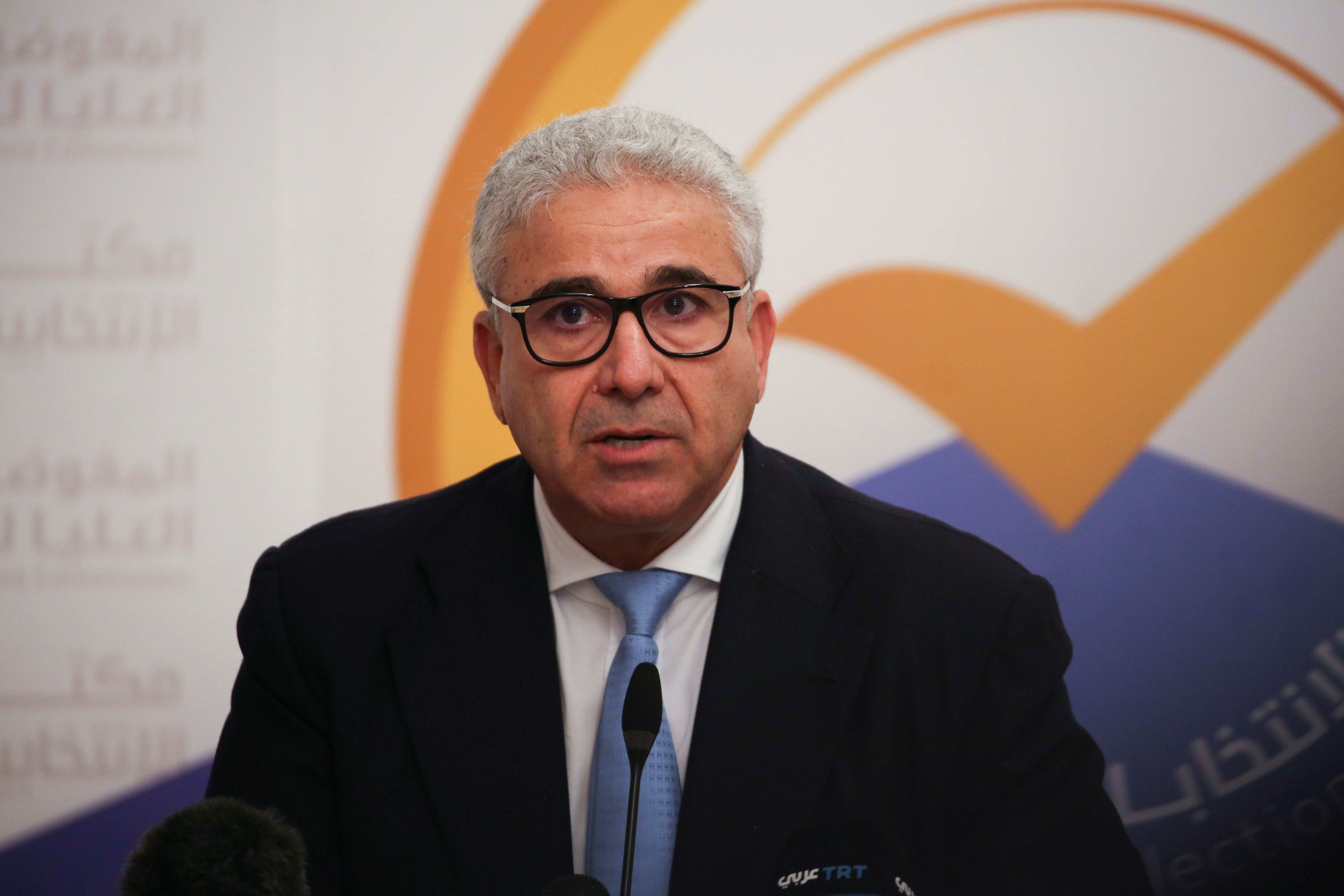
Libya’s east-based parliament has appointed former Interior Minister Fathi Bashaga as the new prime minister, a development that could derail the United Nations-led efforts to reconcile the war-torn country and one likely to produce two parallel administrations.
The Tobruk-based House of Representatives said its decision on Thursday followed the failure of Abdul Hamid Dbeibah, the incumbent prime minister, to hold national elections in December, something that was agreed to under a UN-brokered peace process.
The move also came hours after an apparent assassination attempt on Dbeibah, whose vehicle was sprayed with small-arms fire in the capital, Tripoli. He escaped unharmed.
Racked by conflict since a NATO-backed uprising against longtime ruler Muammar Gaddafi in 2011, Libya was for years split between rival administrations in the east and the west, each supported by myriad militias and foreign governments. The parliament’s move is now expected to deepen divisions between rival factions.
Dbeibah has pledged he would “accept no new transitional phase or parallel authority” and would hand over power only to an elected government.
“The parliament’s selection of a new government is another attempt to enter Tripoli by force,” he told Libya Al Ahrar TV, also promising to draft a new election law to solve the country’s political crisis.
Will the political crisis spread?
But on Thursday evening, Bashagha flew to Tripoli from Tobruk pledging “to open a new chapter” and “reach out to everyone”. Thanking Dbeibah for his work, the 59-year-old said on his arrival at Mitiga airport he was “confident” that the government would “respect democratic principles” and hand over power.
It came hours after the east-based legislators had named him head of a new interim government. Shortly before the vote, Parliament Speaker Aguila Saleh told lawmakers in a televised session that Bashagha was the sole candidate for the post after the other contender, Khaled al-Baibas, pulled out.
During the session, legislators also voted in favour of a set of constitutional amendments that put forward a new plan for the country’s transition to a democratically elected government.
The amendments envisage the creation of a new electoral commission and the appointment of a 24-member committee, representing the country’s all three regions, to draft a new constitution.
Today’s news. Libya has two prime ministers. again. Groundhog Day.
— Anas El Gomati (@AGomati) February 10, 2022
A former air force pilot and businessman, Bashagha, 59, stands as a powerful figure in western Libya. During his tenure as interior minister from 2018 until early 2021, he cultivated ties with Turkey, France and the United States, but also with Egypt and Russia, which backed his nominal rivals in the intra-Libyan conflict.
He is also believed to have links to armed militias in the western city of Misrata that played a key role in defending the capital against a 2019 military offensive from the east led by renegade military commander Khalifa Haftar.
Haftar and his military welcomed the parliament’s move on Thursday.
“Fathi Beshagha is seen by many in western Libya as the country’s strongman. When he was interior minister, he took a strong stance against militias. That brought him into the limelight,” said Al Jazeera’s Malik Traina, reporting from Tripoli.
“He got the general support of people as well as the international community. They thought he could help stabilise the police force and the security apparatus, especially in western Libya.”
‘Country’s strongman’
Dbeibah, a powerful businessman from Misrata, was appointed prime minister in February last year as part of the UN-brokered, Western-backed political process. His government’s main task was to steer the deeply divided country towards national reconciliation and lead it through elections on December 24.
But the polls, the linchpin of international efforts to bring peace to the nation, was postponed over disputes between rival factions on laws governing the vote and controversial presidential hopefuls.
East-based legislators have argued the mandate of Dbeibah’s government ended on that date, while the interim leader became a polarising figure since he announced his presidential bid, breaking his pledge not to run in elections when he was appointed as interim prime minister.
Asked during a daily press briefing whether the UN continued to recognise Dbeibah as interim prime minister, spokesman Stephane Dujarric on Thursday said “the short answer is yes”.
“It’s very important for all Libyan leaders and stakeholders to keep in mind the Libyan people,” Dujarric said, adding the UN’s aim was to “help the Libyan people”.
“We have seen the reports of the appointment of another prime minister,” he said. “Our position remained unchanged.”







